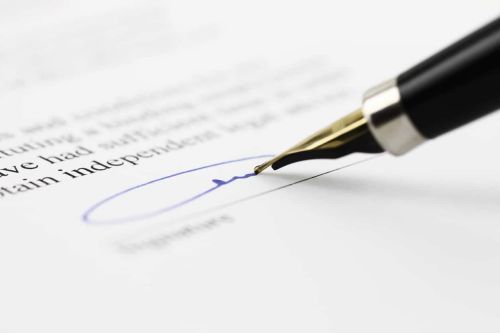


Plea bargaining plays a key role in federal criminal cases. Nationwide, more than 95% of federal cases are resolved through plea bargaining. Understanding how a federal plea agreement works is crucial for anyone charged with a crime in federal court. A plea bargain can significantly influence the outcome of your case and could mean the difference between a lengthy prison term, a reduced sentence or probation. However, it can also come at a heavy financial price with significant fines, restitution and forfeiture judgments. The decision as to whether to enter into a plea agreement is a very complex one that needs to be made after careful, in-depth analysis of all possible options, including an open plea and/or going to trial.
Negotiating a federal plea bargain is a complex process that requires sharp negotiation skills and an in-depth understanding of federal criminal law, Federal Sentencing Guidelines, and how federal prosecutors prepare and prosecute cases.
Sentencing mitigation is a critical part of a good defense strategy. Hope Lefeber is known for her considerable skills in getting major reductions in sentences based on the unique, individualized factors in her clients’ lives that have influenced their conduct. When skillfully presented to the sentencing judge, mitigation evidence can produce life-changing results.
Federal criminal defense attorney Hope Lefeber has decades of experience representing defendants in federal court. She has an in-depth understanding of the federal criminal legal process and will work tirelessly to obtain superior results in your federal criminal case.
A federal plea agreement is a formal agreement between the government and the defendant in which the defendant agrees to plead guilty in exchange for certain stipulations as to amount of fraud loss or drug quantity and other federal sentencing guideline adjustments. The stipulations agreed to in a plea agreement are not binding on the judge who has the authority to reject the agreement in whole or in part. The judge also has the authority to grant downward variances where the defense presents mitigating evidence to support a lesser sentence.
Federal plea bargaining is not the same as negotiating a plea bargain in state court. Different laws and procedural rules apply, and there are additional considerations in federal court cases. Federal plea bargains often involve lengthy written agreements that spell out, in great detail, the defendant’s factual admissions, the sentencing agreement, and other information. However, the plea agreement is not the final word as the judge has the discretion to reject the terms and apply the sentence that he/she deems appropriate.
The government and defense counsel must enter into discussions about virtually every aspect of the case in order to reach an agreement that is beneficial to a defendant. These discussions can occur either pre-indictment or after an indictment has been returned and the defendant is charged. There is a significant advantage to representing a client at the investigation stage of a criminal case, so that the defense lawyer can seek reduced charges prior to presentation of the case to a grand jury. Prosecutors have far more discretion in bringing an Information with limited charges than they do once an indictment has been returned by the grand jury. Nonetheless, once an indictment is brought, a skilled defense lawyer can still achieve an excellent result for the client by limiting the amount of loss and reducing the number of counts of the indictment by securing an agreement by the prosecutor to dismiss certain counts of the indictment.
The prosecution drafts the plea agreement. One of the most important features, that is often overlooked by less experienced defense lawyers, is the Factual Basis of the Plea. That is a written statement that the prosecutor makes in his/her Change of Plea Memorandum and also reads in open court during the change of plea hearing. It is critical for a defense lawyer to finely hone the wording of this statement to anticipate any sentencing enhancements that this statement could engender and to make certain that the defendant’s conduct is not overstated. In all cases, this is a critical factor that can significantly affect the sentence that you receive.
Plea bargains involve significant benefits for prosecutors and defendants. By accepting a plea deal, a defendant avoids the stress and uncertainty of a trial and secures a more favorable sentence. Federal prosecutors prefer plea agreements because they eliminate the need to spend the time and effort to prepare for trial.
Crafting an effective federal plea agreement requires an in-depth understanding of substantive federal law, the Federal Sentencing Guidelines, the role of prosecutorial discretion, and the risks of going to trial.
People charged with crimes in federal court face substantial penalties, including many years in prison and significant financial penalties. Plea bargaining allows defendants to have input into the process and mitigate the potential impact of a guilty verdict at trial. An experienced federal defense attorney helps defendants understand the nuances of federal plea bargaining and evaluate the potential risks and benefits so they can protect their rights and make an informed decision about their case.
Anyone charged with a federal crime needs experienced legal representation. Federal defense attorney Hope Lefeber has decades of experience defending people charged with crimes in federal court. She has an in-depth knowledge of Federal Sentencing Guidelines and will work tirelessly to obtain optimal results in your case.
To put her experience to work for you, contact the Law Office of Hope Lefeber today.
© 2025 Law Offices of Hope Lefeber| View Our Disclaimer | Privacy Policy